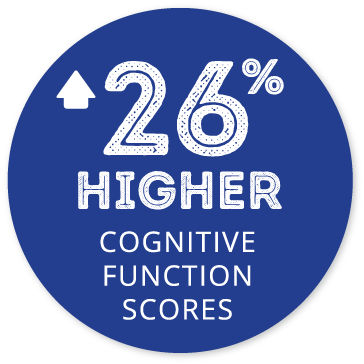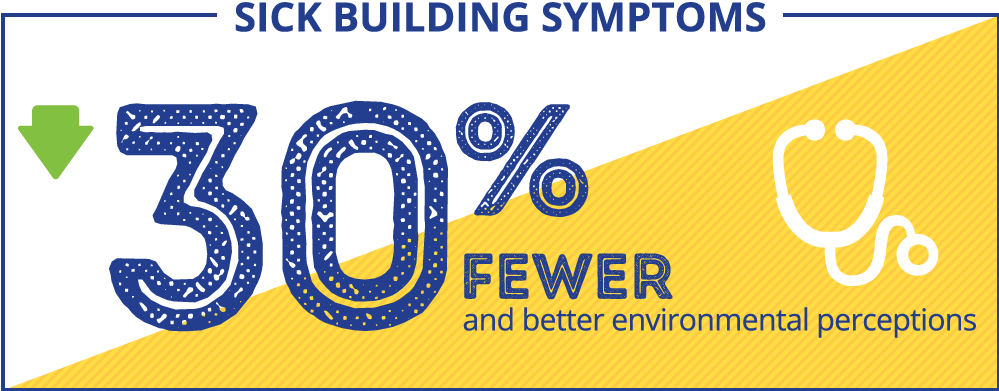New research says yes. Occupants of green-certified, high-performing buildings saw 26 percent higher cognitive function scores, slept better and reported fewer health symptoms compared to those in similarly high-performing buildings that were not green-certified. Those are the findings of a new study from researchers at the Harvard University T.H. Chan School of Public Health’s Center for Health and the Global Environment and SUNY Upstate Medical University.
Based on their latest findings, the research team believes a holistic approach is needed. They call it Buildingomics — a new approach that examines the totality of factors in the building-related environment that influence the human health, well-being and productivity of people who work in buildings.
Through Buildingomics’ multi-disciplinary approach, researchers aim to better understand the building-related factors that influence health in buildings and unlock the ability to optimize buildings for cognitive function and health.

In high-performing1, green-certified buildings2 vs. high-performing non-certified buildings


Low Total Volitile Organic Compounds and High Ventilation

Low Total Volitile Organic Compounds, High Ventilation and Green Certification
High-performing, green-certified buildings' cognitive function score percent change as compared with high-performing, non-certified buildings
Leverage well-integrated solutions with the help of optimal use of information planning.
Pay attention to situations at hand.
Gear decision-making toward overall goals.
Plan, stay prepared and strategize under emergency conditions.

